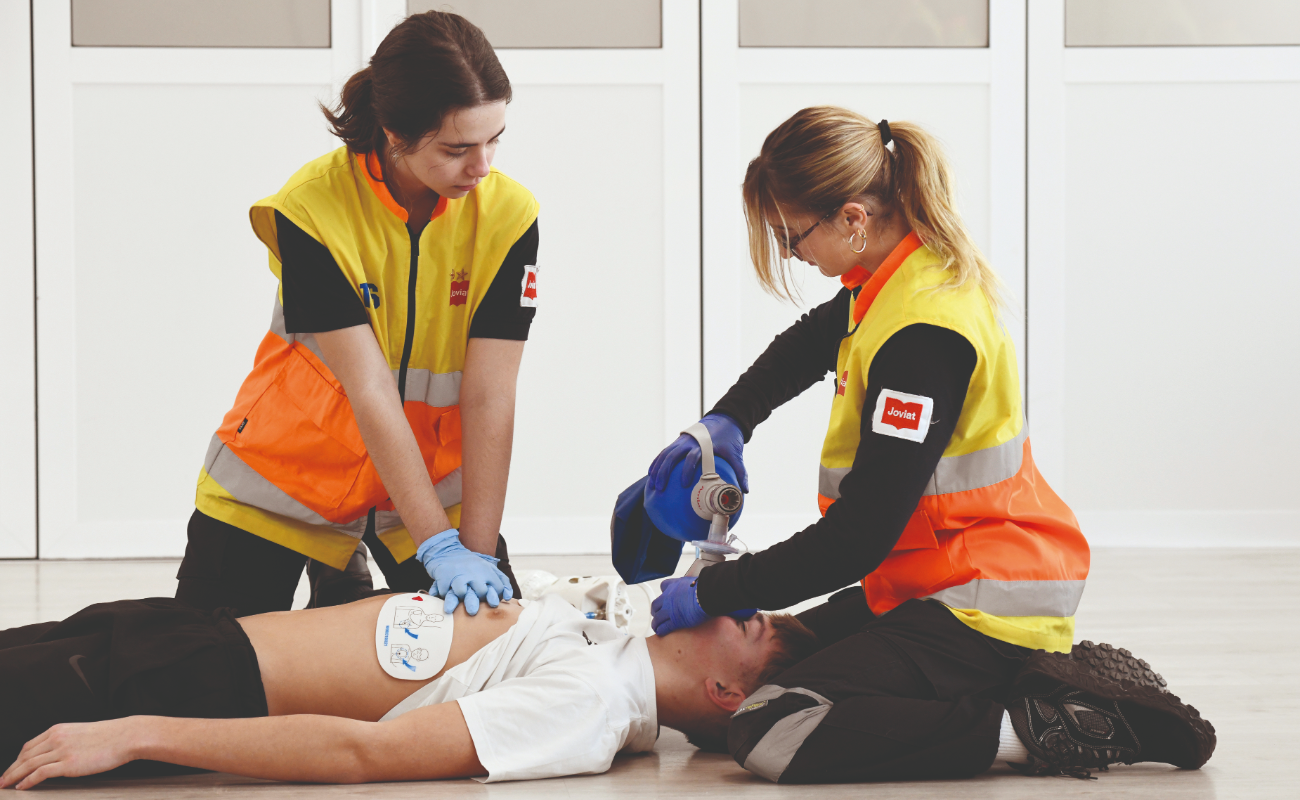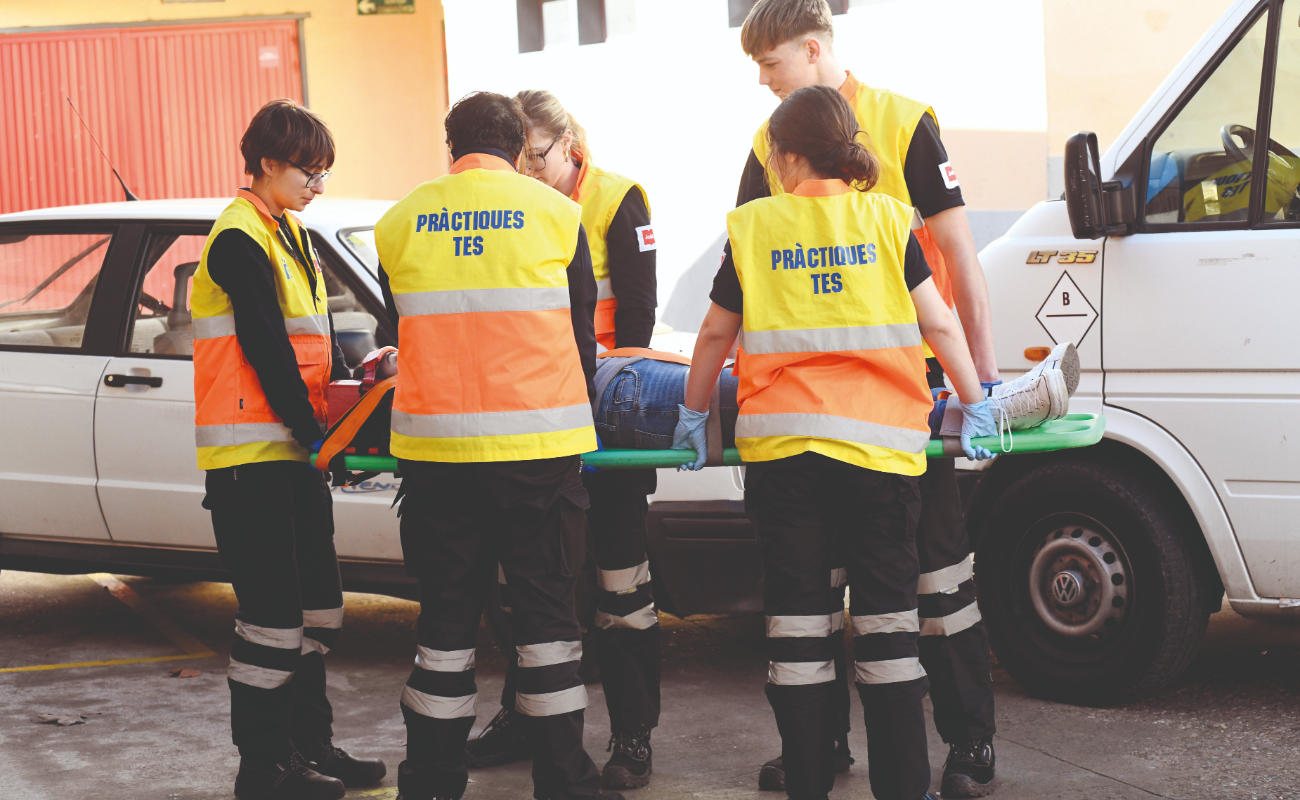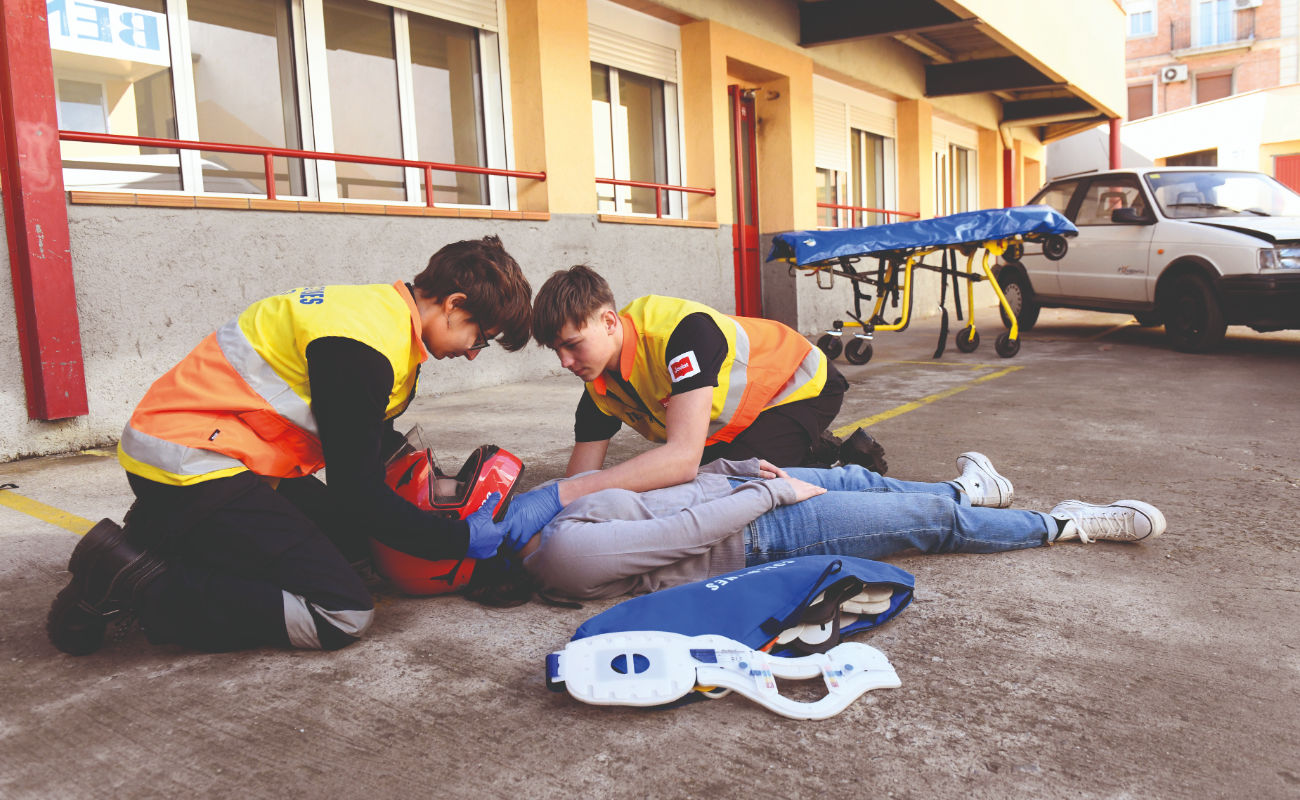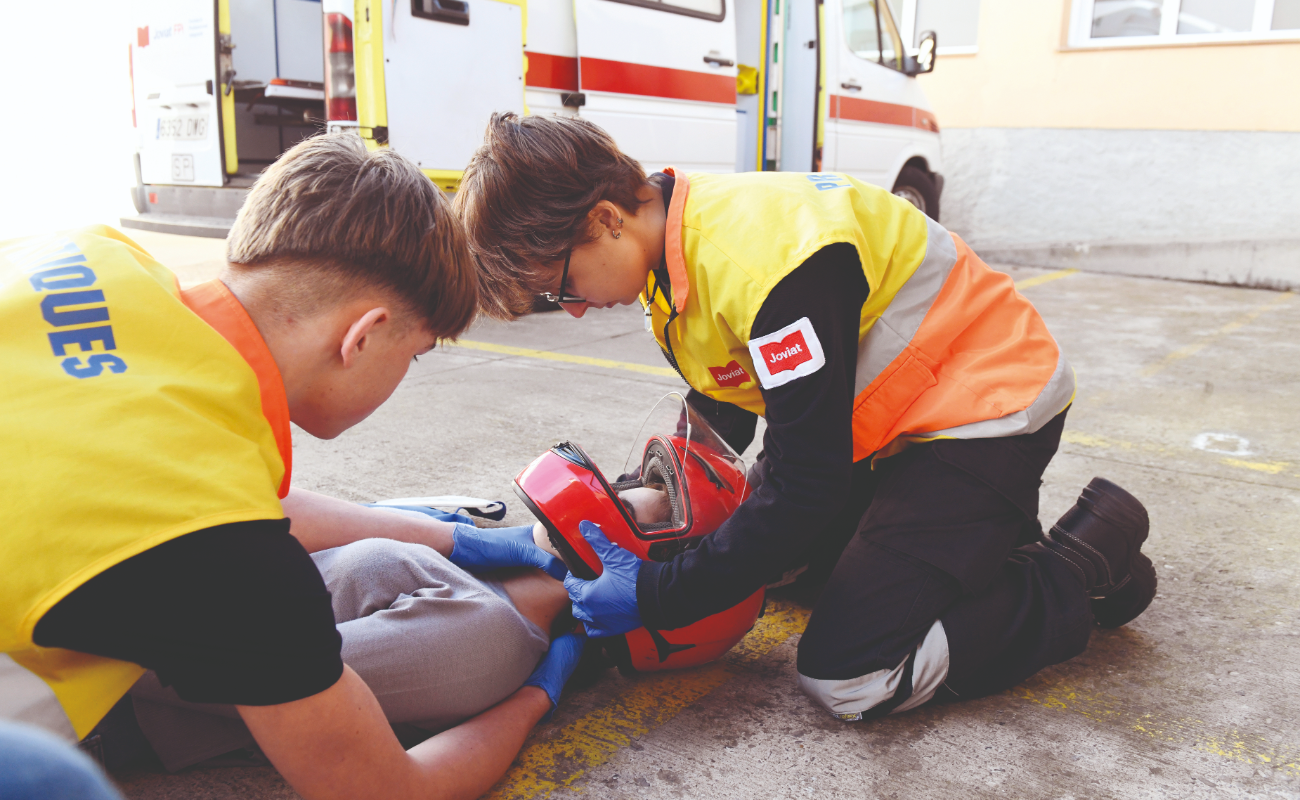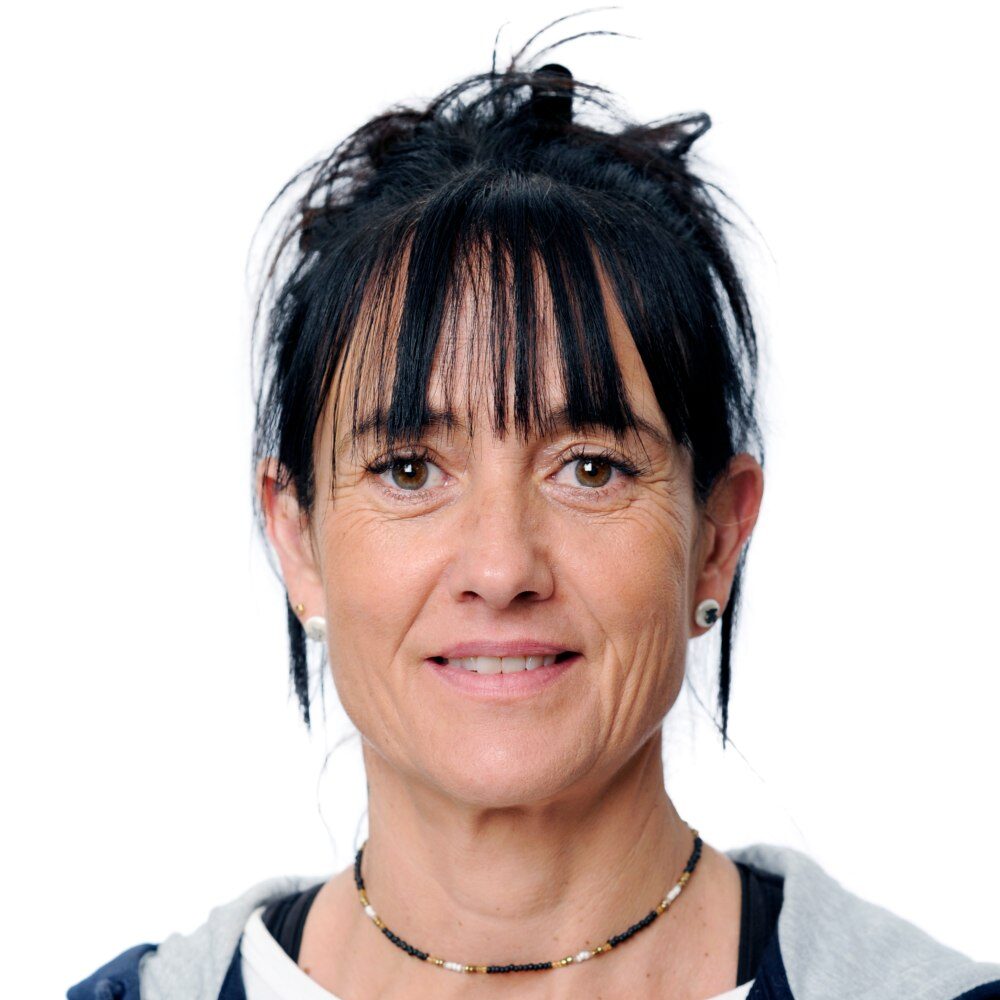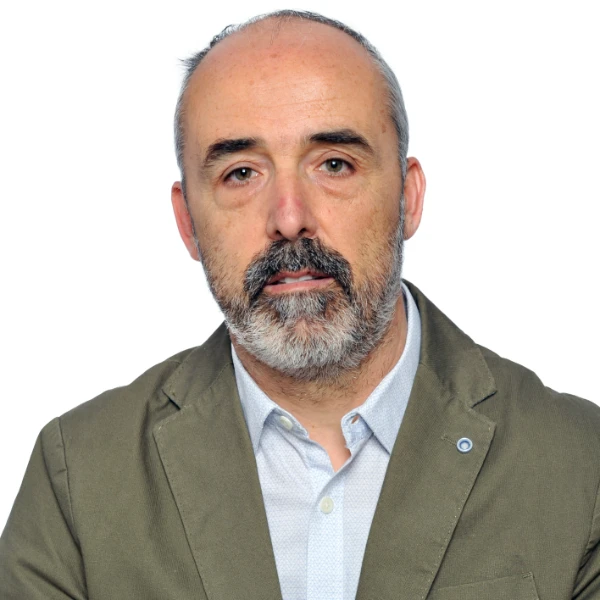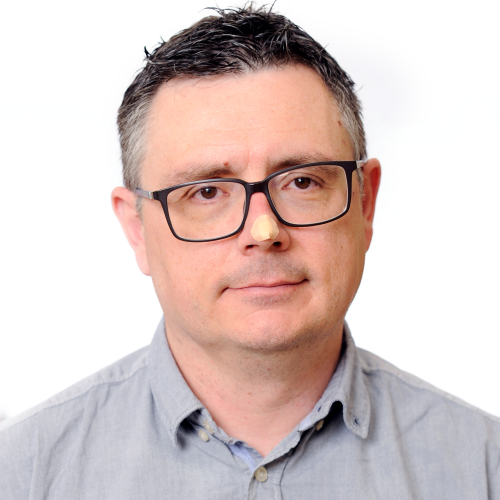| Name: | Health emergencies |
|---|---|
| Level: | Intermediate level professional training |
| Duration of the training cycle: | 2,000 hours – 2 academic years |
| Training in the educational center: | 1,485 hours |
| Training in workplaces: | 515 hours |
The Intermediate Vocational Training Cycle in Health Emergencies at JOVIAT School is designed to train qualified professionals in pre-hospital emergency care.
These studies train you to safely transport patients, provide basic and psychological healthcare in emergency situations, manage telecare operations, and actively participate in the coordination and execution of emergency plans and foreseeable risk devices.
We work with a team that is made up of healthcare teachers, Emergency Technicians, SEM nurses and specialists in the subjects that are taught. And with active methodologies, such as simulation-based learning, and with external workshops and seminars. And we have specialized companies to carry out Training in Work Centers.
We adapt to the diverse needs and circumstances of students; face-to-face or online asynchronously.
Schedules

Morning and afternoon
Morning or afternoon, Monday to Friday:
Morning from 8 am to 2:30 pm
Afternoon from 2:30 p.m. to 9 p.m.
Asynchronous Online Mode
Curriculum
1st year
2nd year
Value projects
Basic life support + AED
Obtaining the Basic Life Support and Defibrillation Certificate from the Catalan Resuscitation Council and the European Resuscitation Council.
Simulation
Simulation of real cases, with which the person faces very different scenarios and situations. This methodology is based on personal experience and that is why the human component prevails above all: the reactions, behaviors and reflections after each experience accompany the person’s self-knowledge. “Simulation is for growth, and mistakes make you grow.”
Seminars, technical visits and conferences
Participation in various seminars, drills and Emergency Update Conferences at the Academy of Medical Sciences.
Internships
Practical workshops with the center’s ambulance and a fully equipped ambulance simulator.
Logos 360º Project
The Project combines all the modules of the cycle in a theoretical and practical work that lasts two years and is based on the Situation-Based Learning methodology. Students are presented with a series of situations, which they must research, analyze, present and share. The objective is to apply everything learned in clinical simulation. This methodology also develops the person’s critical spirit.
Synthesis project
It is a final project of a research cycle, related to the working world of the emergency medical technician. Students choose a topic and plan their development until the final presentation, with the option of doing it in front of a professional audience.

